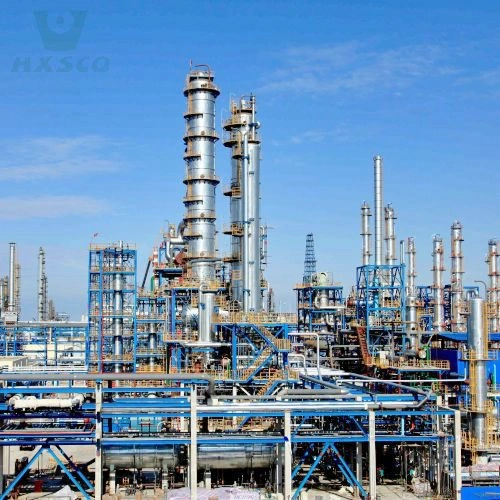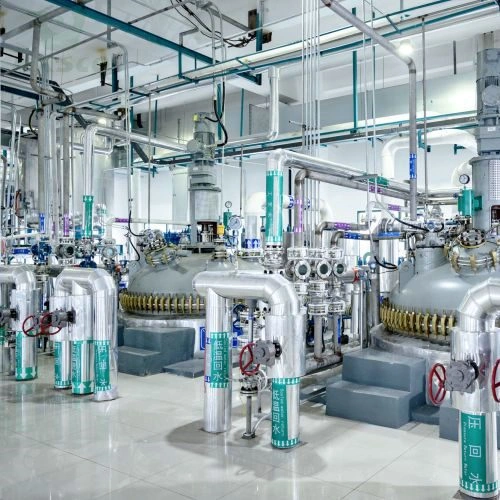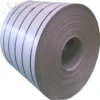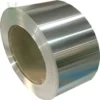Stainless Steel Coil 321 is a popular stainless steel grade that is widely used in various industries. In this article, we will discuss the properties, applications, manufacturing, and maintenance of Stainless Steel Coil 321.
As one of the professional stainless steel suppliers, we understand the importance of providing high-quality stainless steel products to meet the diverse needs of our customers. At HXSCO, we specialize in the production and export of Stainless Steel Coil 321 and other stainless steel products.
Stainless Steel Coil 321 is a titanium-stabilized austenitic stainless steel that is resistant to intergranular corrosion, high-temperature oxidation, and aqueous corrosion. It is commonly used in applications where high-temperature performance and resistance to corrosion are required, such as in chemical processing, aerospace, and automotive industries.
As one of the leading stainless steel suppliers, we have extensive experience in manufacturing and delivering high-quality stainless steel products to our customers worldwide. We have a comprehensive quality control system in place to ensure that our products meet or exceed industry standards and customer expectations.
Properties Of Stainless Steel Coil 321
Stainless Steel Coil 321 is a titanium-stabilized austenitic stainless steel that is known for its excellent resistance to intergranular corrosion, high-temperature oxidation, and aqueous corrosion. It contains a lower carbon content than Stainless Steel Coil 304, which makes it more resistant to sensitization and intergranular corrosion.
Chemical Composition
Stainless Steel Coil 321 contains 17-19% chromium, 9-12% nickel, and 0.08% carbon. The addition of titanium stabilizes the material against chromium carbide formation, which can occur in the presence of high-temperature and corrosive environments. The presence of nickel provides enhanced resistance to corrosion, while chromium provides improved strength and oxidation resistance.
Corrosion Resistance
Stainless Steel Coil 321 offers excellent corrosion resistance, particularly in environments containing sulfuric acid, nitric acid, and salts. It is also resistant to intergranular corrosion, which can occur in the presence of carbide precipitation in high-temperature environments. This property makes Stainless Steel Coil 321 an ideal material for use in chemical processing, pharmaceutical, and food processing industries.
Physical Properties
Stainless Steel Coil 321 exhibits excellent mechanical properties, including high tensile and yield strength, good ductility, and excellent formability. It has a density of 0.286 lb/in3 (7.93 g/cm3) and a melting point of 2550-2635°F (1400-1446°C). Stainless Steel Coil 321 also has excellent high-temperature performance, with a maximum operating temperature of 1650°F (899°C).
Weldability
Stainless Steel Coil 321 is easy to weld and has excellent weldability. It can be welded using all standard welding techniques, including gas tungsten arc welding (GTAW), gas metal arc welding (GMAW), and shielded metal arc welding (SMAW).
Stainless Steel Coil 321 has several advantages over other stainless steel grades, including its excellent high-temperature performance, resistance to intergranular corrosion, and good weldability. As one of leading stainless steel suppliers, HXSCO provide high-quality Stainless Steel Coil 321 to meet the diverse needs of our customers. Our Stainless Steel Coil 321 products are manufactured using advanced production techniques and strict quality control measures to ensure optimal performance and reliability.
Manufacturing Of Stainless Steel Coil 321
Stainless Steel Coil 321 is manufactured using advanced production techniques that ensure its excellent mechanical properties, corrosion resistance, and high-temperature performance.
Raw Materials
The raw materials used in the production of Stainless Steel Coil 321 are high-quality stainless steel alloys, including 17-19% chromium, 9-12% nickel, and 0.08% carbon. The addition of titanium stabilizes the material against chromium carbide formation, which can occur in the presence of high-temperature and corrosive environments.
Melting and Casting
The first step in the production of Stainless Steel Coil 321 is melting the raw materials in an electric arc furnace or an induction furnace. The molten metal is then cast into large slabs using a continuous casting machine.
Rolling
The cast slabs are then rolled into thin sheets using a hot rolling process. The hot rolling process involves passing the slabs through a series of rollers that reduce their thickness and shape them into coils.
Annealing and Pickling
After rolling, the coils are annealed to remove any stress that may have built up during the rolling process. Annealing also improves the material’s ductility and allows it to be easily formed into different shapes. The coils are then pickled to remove any surface impurities and improve their corrosion resistance.
Cold Rolling and Finishing
The annealed and pickled coils are then cold rolled to achieve the desired thickness and surface finish. Cold rolling involves passing the coils through a series of rollers at room temperature. The final step in the manufacturing process is finishing, which involves cutting the coils into different sizes and shapes and applying any necessary surface treatments.
At HXSCO, we are a leading supplier of high-quality Stainless Steel Coil 321 and other stainless steel products. We source our raw materials from trusted suppliers and use advanced production techniques to ensure optimal performance and reliability. Our manufacturing process includes strict quality control measures to ensure that our products meet the highest industry standards.
We take pride in our ability to provide customized solutions to meet the diverse needs of our customers. Whether you need Stainless Steel Coil 321 in different sizes, shapes, or surface finishes, we have the expertise and resources to deliver high-quality products that meet your specifications.
In conclusion, Stainless Steel Coil 321 is manufactured using advanced production techniques that ensure its excellent properties and performance. As one of leading stainless steel suppliers, HXSCO are committed to providing high-quality products that meet the diverse needs of our customers. Whether you are in the chemical processing, pharmaceutical, or food processing industries, we have the expertise and resources to deliver customized solutions that meet your needs.
Applications Of Stainless Steel Coil 321
Stainless Steel Coil 321 is a versatile material that finds application in a wide range of industries, including aerospace, chemical processing, food processing, and pharmaceuticals.
AEROSPACE INDUSTRY
Stainless Steel Coil 321 finds extensive use in the aerospace industry, particularly in the manufacturing of aircraft exhaust systems, engine components, and other high-temperature applications. The material’s excellent corrosion resistance, high-temperature performance, and strength make it an ideal choice for these applications.
CHEMICAL PROCESSING INDUSTRY
The chemical processing industry also uses Stainless Steel Coil 321 extensively. The material’s resistance to corrosion and high-temperature performance make it an ideal choice for manufacturing chemical processing equipment, such as reactors, tanks, and pipes. The material’s resistance to corrosion and chemical attack is essential for maintaining the purity of the chemicals being processed.


FOOD PROCESSING INDUSTRY
In the food processing industry, Stainless Steel Coil 321 is used in equipment that comes into contact with food and beverages. The material’s excellent corrosion resistance and high-temperature performance make it ideal for manufacturing equipment such as storage tanks, conveyor systems, and processing equipment.
PHARMACEUTICAL INDUSTRY
The pharmaceutical industry uses Stainless Steel Coil 321 in manufacturing equipment for drug processing, storage, and distribution. The material’s excellent corrosion resistance and high-temperature performance make it ideal for manufacturing equipment that comes into contact with chemicals and drugs.
At HXSCO, we are a leading supplier of high-quality Stainless Steel Coil 321 and other stainless steel products. Our Stainless Steel Coil 321 is widely used in various industries due to its excellent mechanical properties, corrosion resistance, and high-temperature performance. Our products are sourced from trusted suppliers and manufactured using advanced production techniques to ensure optimal performance and reliability.
Our team of experts has extensive experience working with customers in various industries, including aerospace, chemical processing, food processing, and pharmaceuticals.
In conclusion, Stainless Steel Coil 321 is a versatile material that finds extensive use in various industries, including aerospace, chemical processing, food processing, and pharmaceuticals. As one of leading stainless steel suppliers, we are committed to providing high-quality products that meet the diverse needs of our customers. Whether you need Stainless Steel Coil 321 for high-temperature applications or for equipment that comes into contact with chemicals and drugs, we have the expertise and resources to deliver customized solutions that meet your needs.
Manufacturing Of Stainless Steel Coil 321
Stainless Steel Coil 321 is a durable material that requires minimal maintenance. However, proper care is essential to ensure optimal performance and longevity.
Cleaning
Stainless Steel Coil 321 should be cleaned regularly to remove dirt, grime, and other contaminants that can cause surface staining and corrosion. Use a soft cloth or sponge and a mild detergent solution to clean the surface. Avoid using abrasive cleaners or scouring pads, as they can scratch the surface and cause damage. Rinse the surface thoroughly with clean water and dry it with a soft cloth.
Avoid Exposure to Corrosive Environments
Stainless Steel Coil 321 is highly resistant to corrosion. However, prolonged exposure to corrosive environments, such as saltwater, can cause surface staining and corrosion. If your Stainless Steel Coil 321 comes into contact with corrosive materials, rinse it thoroughly with clean water and dry it with a soft cloth.
Avoid Impact and Scratches
Stainless Steel Coil 321 is a durable material that can withstand impact and scratches. However, repeated impacts or scratches can cause surface damage and compromise the material’s corrosion resistance. To avoid impact and scratches, handle the material carefully and avoid contact with hard or sharp objects.
Regular Inspection
Regular inspection of Stainless Steel Coil 321 is essential to detect any surface damage or corrosion early. Inspect the material regularly for signs of surface staining, scratches, or corrosion. If you detect any damage, clean the surface and take appropriate measures to repair or replace the damaged area.
In conclusion, proper maintenance and care are essential to ensure optimal performance and longevity of Stainless Steel Coil 321. Regular cleaning, avoiding exposure to corrosive environments, avoiding impact and scratches, and regular inspection are some of the best practices for maintaining and caring for Stainless Steel Coil 321. As leading stainless steel suppliers, HXSCO is committed to providing high-quality products and supporting our customers with expert advice and guidance on proper maintenance and care.
FAQ
Stainless Steel Coil 321 is a versatile and high-performance material that offers numerous advantages for manufacturing applications. Here are some of the main advantages of using Stainless Steel Coil 321 in manufacturing:
Corrosion Resistance: Stainless Steel Coil 321 is highly resistant to corrosion, making it an ideal material for use in harsh environments. It is particularly resistant to intergranular corrosion, which is a type of corrosion that occurs in welded stainless steel materials.
High Temperature Resistance: Stainless Steel Coil 321 is highly resistant to high temperatures, making it an excellent choice for applications that require high heat resistance. It can withstand temperatures up to 1500°F (816°C) without experiencing significant scaling or embrittlement.
Strength and Durability: Stainless Steel Coil 321 has excellent strength and durability, making it suitable for use in demanding applications. It has a higher strength-to-weight ratio than other austenitic stainless steels, and it retains its strength and ductility even after exposure to high temperatures.
Weldability: Stainless Steel Coil 321 is easy to weld and does not require post-weld annealing, making it a popular choice for welded components. This reduces the cost and time required for manufacturing, as well as minimizing the risk of weld-related defects.
Cost-Effective: Stainless Steel Coil 321 is a cost-effective material due to its relatively low nickel content compared to other stainless steel alloys. This makes it a popular choice for applications where high corrosion resistance and high temperature resistance are required, but cost is a primary consideration.
Wide Availability: Stainless Steel Coil 321 is widely available from stainless steel suppliers around the world, making it easy to source for manufacturing applications. Its popularity and availability also mean that there is a large body of knowledge and experience in working with the material, making it easier to design and manufacture components using Stainless Steel Coil 321.
Resistance to Chemicals: Stainless Steel Coil 321 has high resistance to a wide range of chemicals, including organic and inorganic chemicals, making it suitable for use in chemical processing applications.
Low Maintenance: Stainless Steel Coil 321 requires minimal maintenance due to its high corrosion resistance and durability. This reduces the costs associated with maintenance and repair over the life of the component or equipment.
Hygienic Properties: Stainless Steel Coil 321 has excellent hygienic properties, making it suitable for use in applications where cleanliness and hygiene are critical, such as in the food and beverage industry.
Aesthetic Appearance: Stainless Steel Coil 321 has an attractive and modern appearance, making it a popular choice for applications where aesthetics are important, such as in architecture and interior design.
In summary, Stainless Steel Coil 321 offers numerous advantages for manufacturing applications, including high corrosion resistance, high temperature resistance, strength and durability, weldability, cost-effectiveness, wide availability, resistance to chemicals, low maintenance, hygienic properties, and aesthetic appearance. Stainless steel suppliers can provide additional information on the benefits of using Stainless Steel Coil 321 for specific applications.
Stainless steel is a widely used material in various industries due to its excellent corrosion resistance and mechanical properties. Among the different types of stainless steel, Stainless Steel Coil 321 is particularly notable for its unique properties that set it apart from other types.
Firstly, Stainless Steel Coil 321 contains titanium as a stabilizing element, which makes it more resistant to intergranular corrosion than other types of stainless steel, especially when exposed to high temperatures. This is because titanium forms a stable oxide layer on the surface of the steel, which prevents the penetration of oxygen and other corrosive agents into the metal.
Secondly, Stainless Steel Coil 321 is highly resistant to heat, making it suitable for use in high-temperature applications. It can withstand temperatures up to 900°C without losing its mechanical properties, which is significantly higher than other austenitic stainless steels.
Thirdly, Stainless Steel Coil 321 has good weldability, which allows it to be easily formed into various shapes and structures. This is due to its low carbon content, which reduces the risk of carbide precipitation during welding and prevents the formation of brittle structures.
In addition to these unique properties, Stainless Steel Coil 321 also offers other benefits such as good mechanical properties, excellent fatigue resistance, and good oxidation resistance.
Stainless Steel Coil 321 is widely used in various industries such as aerospace, chemical processing, and power generation. Its unique properties make it suitable for high-temperature applications where other types of stainless steel may fail. When selecting Stainless Steel Coil 321, it is important to choose reputable stainless steel suppliers who can provide high-quality material that meets the required specifications.
Stainless Steel Coil 321 is a popular grade of austenitic stainless steel that offers excellent corrosion resistance, high-temperature strength, and good weldability. Welding is a common process used to join two or more metal components, and Stainless Steel Coil 321 is no exception. In this article, we will explore the weldability of Stainless Steel Coil 321, including its advantages and limitations, as well as the role of stainless steel suppliers in ensuring the quality of the material.
Weldability of Stainless Steel Coil 321
One of the main advantages of Stainless Steel Coil 321 is its good weldability. This is due to its low carbon content, which reduces the risk of carbide precipitation and intergranular corrosion during welding. The addition of titanium also contributes to its good weldability by forming a stable oxide layer on the surface of the steel.
Stainless Steel Coil 321 can be welded using various welding techniques such as gas tungsten arc welding (GTAW), gas metal arc welding (GMAW), and shielded metal arc welding (SMAW). GTAW is the most common method used for welding Stainless Steel Coil 321 due to its precision and control.
Advantages of Welding Stainless Steel Coil 321
One of the main advantages of welding Stainless Steel Coil 321 is its ability to maintain its properties after welding. This is due to its low carbon content and the formation of a stable oxide layer during welding. It also has good ductility and high-temperature strength, which allows it to withstand the stresses of welding without cracking or distortion.
Another advantage of welding Stainless Steel Coil 321 is its versatility. It can be welded to other stainless steels or dissimilar metals, making it suitable for a wide range of applications in various industries.
Limitations of Welding Stainless Steel Coil 321
Despite its good weldability, Stainless Steel Coil 321 does have some limitations when it comes to welding. One of the main limitations is its susceptibility to sensitization, which can occur when the material is exposed to temperatures between 425°C and 870°C. Sensitization can lead to intergranular corrosion and reduced mechanical properties, which can be mitigated by using low-carbon filler metals and proper welding techniques.
Another limitation of welding Stainless Steel Coil 321 is its tendency to form sigma phase during prolonged exposure to high temperatures. Sigma phase is a brittle phase that can lead to cracking and reduced mechanical properties, which can be avoided by using proper heat treatment and cooling techniques.
Role of Stainless Steel Suppliers
When it comes to welding Stainless Steel Coil 321, it is important to choose reputable stainless steel suppliers who can provide high-quality material that meets the required specifications. A reliable supplier can ensure that the material is free from defects and contaminants that can affect its weldability and performance. They can also provide guidance on the proper welding techniques and filler metals to use for optimal results.
In conclusion, Stainless Steel Coil 321 is a highly weldable material that offers excellent corrosion resistance and high-temperature strength. While it does have some limitations when it comes to welding, these can be mitigated by using proper techniques and filler metals. When selecting Stainless Steel Coil 321, it is important to choose reputable stainless steel suppliers who can provide high-quality material and technical support for welding and other applications.
Stainless Steel Coil 321 is a popular choice in many industries due to its high resistance to corrosion, high-temperature performance, and excellent mechanical properties. To ensure that the stainless steel coil 321 meets the required quality standards and performance criteria, various testing procedures are carried out during and after the manufacturing process.
Chemical Composition Analysis:
The chemical composition of Stainless Steel Coil 321 is analyzed to ensure that the alloy meets the required standards. This analysis involves testing the percentage of each element present in the alloy, including carbon, chromium, nickel, titanium, and other trace elements.
Mechanical Testing:
Mechanical testing is performed to evaluate the strength, ductility, and other mechanical properties of Stainless Steel Coil 321. This testing includes tensile testing, hardness testing, and impact testing. The results of these tests help to ensure that the alloy meets the required mechanical performance criteria.
Corrosion Resistance Testing:
Stainless Steel Coil 321 is known for its excellent corrosion resistance. Various tests are carried out to evaluate the resistance of the alloy to different types of corrosion, including pitting, crevice, and intergranular corrosion. These tests include the ASTM A262 practice A test, which evaluates the resistance of Stainless Steel Coil 321 to intergranular corrosion in a nitric acid solution.
Non-Destructive Testing:
Non-destructive testing methods are used to evaluate the quality and performance of Stainless Steel Coil 321 without causing damage to the material. These methods include ultrasonic testing, magnetic particle testing, and dye penetrant testing. These tests help to detect any defects or flaws in the material that may affect its performance.
Stainless steel suppliers typically carry out these tests to ensure that Stainless Steel Coil 321 meets the required quality standards and performance criteria. The results of these tests are then shared with customers to ensure that they are receiving a high-quality product that meets their requirements.
In conclusion, Stainless Steel Coil 321 is subjected to various testing methods to ensure its quality and performance. These tests include chemical composition analysis, mechanical testing, corrosion resistance testing, and non-destructive testing. By conducting these tests, stainless steel suppliers can ensure that the alloy meets the required standards and specifications, and customers can be confident in the quality and performance of the product they receive.
Conclusion
In summary, Stainless Steel Coil 321 is a highly suitable stainless steel coil for high-temperature and corrosive environments, with excellent oxidation resistance and high-temperature strength, making it suitable for manufacturing heat exchangers, high-temperature furnaces, corrosion-resistant equipment, and the aerospace industry, among others. In terms of manufacturing processes, stainless steel suppliers use different techniques and methods to produce high-quality Stainless Steel Coil 321. Maintenance and care are also important for ensuring its longevity and optimal performance.
As with any product, it’s important to source Stainless Steel Coil 321 from reputable stainless steel suppliers who can provide quality products and reliable services. At HXSCO, we take pride in our reputation as a trusted supplier of high-quality stainless steel products, including Stainless Steel Coil 321, to clients all over the world. Contact us today to learn more about our products and services.





